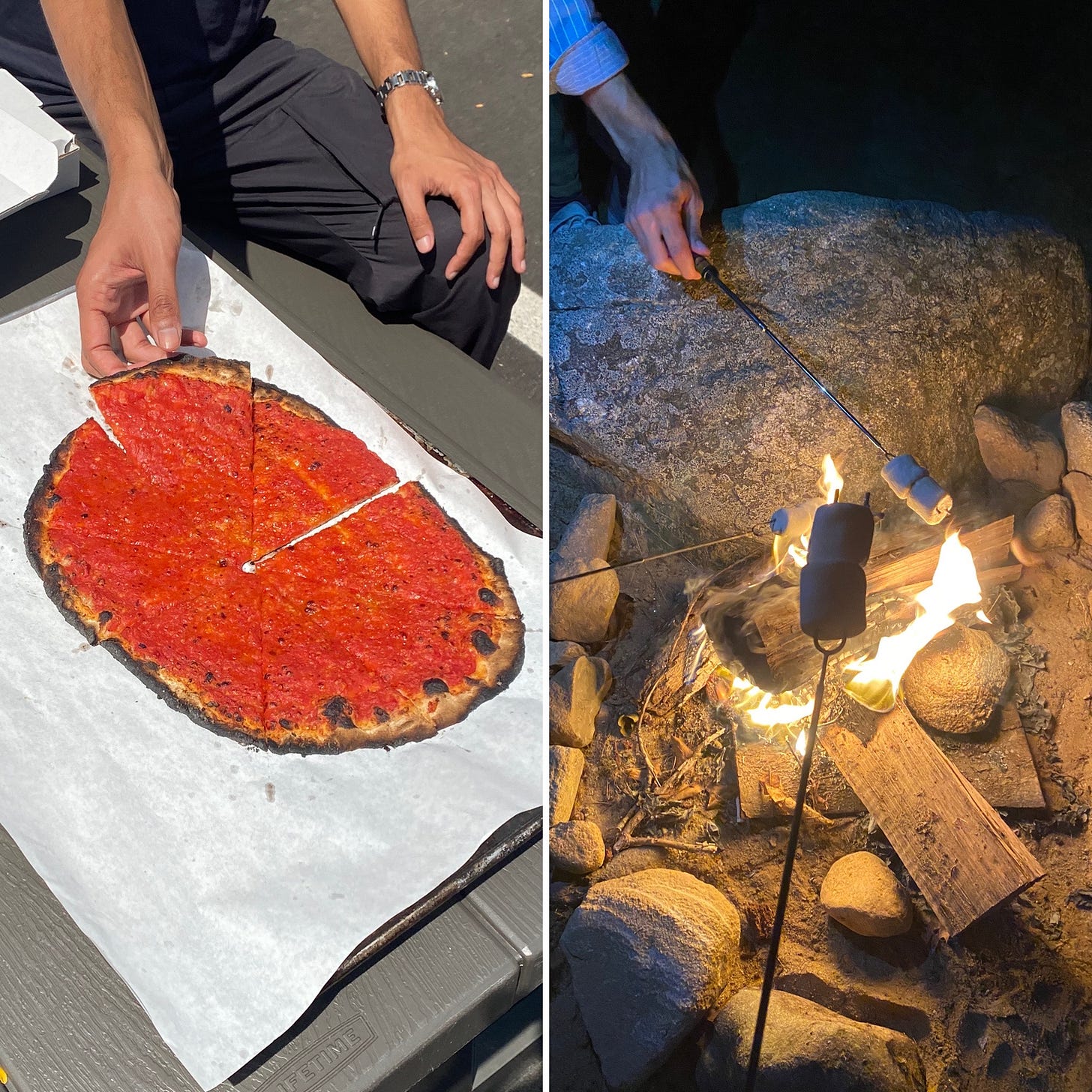I drove up to Maine last week with some friends for a vacation, or so I thought. We swam in lakes, cooked together, went blueberry picking, drank lots of wine. It was refreshing to get away, be somewhere new, and spend time outdoors while it’s still summertime. And yet I couldn’t relax. I had several deadlines coming up upon my return. Jacob Blake was shot seven times by police officer Rusten Sheskey in Kenosha, WI. People I love were navigating tough times, and I wanted to be there for them. I wasn’t able to disconnect.
On the last evening, itching for some semblance of respite, I proclaimed that I didn’t want to be on my phone for the whole night. Someone suggested that we all put our phones in a bowl and let them be. It was a good idea, although it didn’t really work.

Now that I’m home, I’ve been thinking about what it can or should mean to take a break, not just from work, but from being plugged in. The last six months have been emotionally grueling and I’m sure I’m not the only one who is craving a thorough recharge.
A couple of weeks ago I went on a hike with a good friend of mine who is a reporter. At one point he said, “what I love about it here is I have no service.” The loss of bars for a few hours is a treat; a hiatus. And this was a Saturday.
Part of what I love about baking bread is how it forces you to engage with what’s directly in front of you, to use your hands, to be in your body. Working with sourdough requires returning to your dough every 30 minutes or so to stretch and fold it over itself, in order to develop gluten. These are called “turns” and each set takes less than a minute to complete. Afterward, I return to my computer and get back to the grind. The cumulative tension that arises from briefly disconnecting then reimbursing myself in work is exhausting. Usually, the next morning’s reward of a fresh, home-baked loaf makes up for it.
I’ve talked to people in the restaurant industry who say that although their job is physically taxing and vacation days are minimal, part of what they like about the work is how it allows them to compartmentalize life. When they’re not in the kitchen or on the floor, they have control over their time and headspace. Sure, you might have to look out for an email or a text every now and then with scheduling updates or requests, but your inbox doesn’t hang over your head, your days off aren’t clouded by stress over an upcoming presentation, punctured by when a source is available to chat, or spent writing copy that you didn’t get to before Friday at 5 PM.
We’re all well aware of the harmfulness that America’s unrelenting work ethic has on mental health. It’s easier though, I think, to take time off from work than it is to unplug. Staying tuned to the news, keeping up with friends on social media, engaging in public conversation, even projecting moments of bliss—all of this contributes to the overarching burden of connectivity. There’s also the type of work that isn’t tied to a business, and that’s often done for free: creative expression, activism, caring for others. How do you navigate taking breaks from that?
I wish there was a simple release button one could press at the beginning of a vacation, but instead, you have to set boundaries and communicate them clearly in order to truly let go. That’s much easier said than done.
Now that the more severe phase of lockdown is over (at least for now), most folks in my orbit have figured out how to get away at some point, somehow. People have flown home to visit family. Others have embarked on road trips or rented houses outside of the city for a month. Traveling is a little less scary.
Changing locations is often synonymous with vacation. But now that work is remote for many, uprooting oneself doesn’t necessarily translate to taking time off. The lines between what’s considered a trip and a shift in scenery are completely blurred.
Life is riddled with responsibility—for your peers and your loved ones, for society, but also for yourself. I’m realizing that a crucial part of the latter is figuring out how to meaningfully detach for a few days, or a week, every now and then. I’m still figuring out how to do that. If you have tips, my inbox is open.

Try This
Build a fire, make s’mores (Right)
Matt Tilden of SCRATCHbread does a mean vegan banh mi for Bushwick’s High Low Beverage Company
Road trip to New Haven for Sally’s tomato pie (Left)
Thai Diner’s vegetarian khao soi comes with rainbow chard and shiitake mushrooms
Read That
I’m all about the mushroom trend [NYMag]
Pizza farmer is high on my list of alternative careers [NYTimes]
Resy’s Chinatown USA package is full of gems, including Deanna Ting’s account of her grandfather’s life as a restaurateur in Wichita, Kansas [Resy]
A regular of the magnificently diverse Houston restaurant scene considers what’s at stake [Oxford American]
Dissatisfied with the quality of watermelon in Brooklyn, this pastor now trucks the good stuff in and slings whole fruits on Bedford & Empire [Patch]


